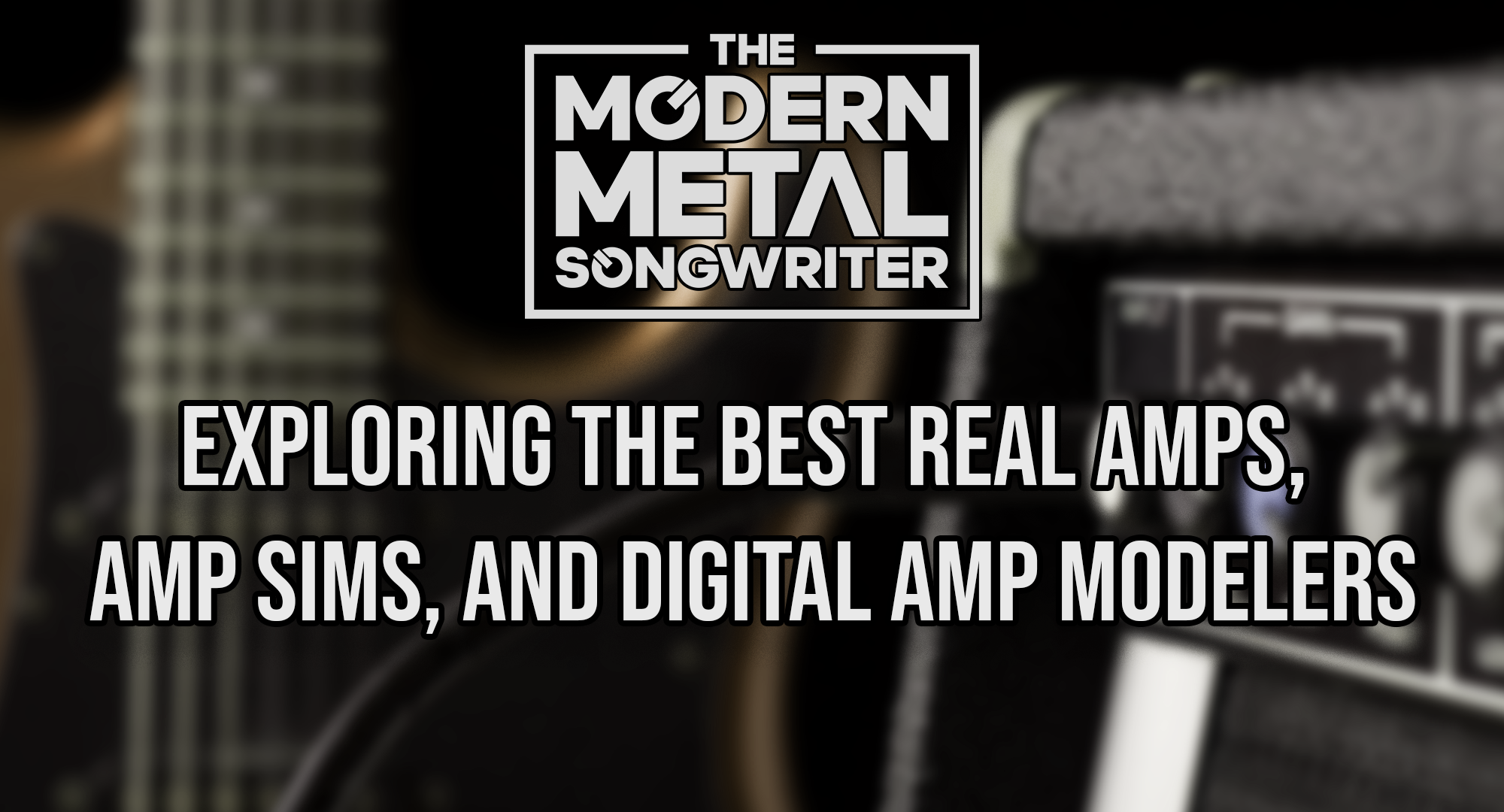In the world of modern metal production musicians and engineers are constantly seeking ways to capture the raw energy and intensity that define this genre. Amidst the digital landscape, there's a resurging interest in a more organic approach to sound creation – analog hardware. In this blog, we explore the allure behind analog gear and why it continues to be popular despite the rise of digital plugins.
What is Analog Hardware?
Analog hardware, in the context of audio production, refers to physical equipment that processes sound using electrical signals. Unlike their digital counterparts that manipulate discrete numerical data, analog devices work by directly modulating continuous electrical currents. This adds character by providing a unique warmth, and depth to the sound that many engineers find is necessary for crafting their sounds.

Why Professionals Embrace Analog Hardware
Many top engineers in the metal music industry have a deep appreciation for the distinctive qualities analog hardware brings to their craft. The genre's thunderous riffs, intricate solos, and pounding drums thrive when enriched by the harmonically rich textures analog processing can provide.
Think about how modern metal producers often saturate their drums and mixes overall using plugins like MMS’s NovaClip or Saturn. The idea is often to replicate the harmonics and pleasant distortion that happens when sending a signal through analog hardware at high levels. While plugins like Decapitator and Saturn are great, the tangible, hands-on nature of working with physical knobs and switches can inspire creativity, allowing producers to sculpt sounds with a level of control that digital interfaces sometimes lack.

How Expensive is Analog Hardware?
The cost of analog hardware can vary widely, ranging from affordable entry-level units such as Warm Audio to high-end, boutique devices with premium price tags like a vintage Fairchild. While acquiring a comprehensive collection of analog gear can be a significant investment, many producers consider it a worthwhile expenditure due to the unparalleled sonic character these devices impart. Additionally, analog hardware often holds its value so it's usually considered a good market to invest in.
How Often Do you Replace Parts?
The longevity of analog hardware depends on several factors, including the quality of the equipment, how well it's maintained, and how frequently it's used. High-quality units from reputable manufacturers can have a long lifespan with proper care. Regular maintenance, such as cleaning connectors, avoiding extreme temperature fluctuations, and addressing issues promptly, can significantly extend the life of analog gear.

Analog Sound vs. Plugin Sound
The distinction between analog and plugin sounds lies in their sonic characteristics and the processes by which they're generated. Analog hardware introduces subtle imperfections, harmonics, saturation, and nuances that appeal to engineers and producers.
On the other hand, plugins aim to replicate the sound of analog hardware using algorithms and mathematical models. While modern advancements have led to highly accurate emulations, some purists argue that plugins can lack the intangible qualities that analog circuits impart. This debate ultimately hinges on personal preference and the desired sonic outcome. This article is not intended to influence you to go out and buy any hardware, just to understand the nature of hardware and why it is still used.
Accessing Analog Hardware Without Ownership
In the digital age, innovation has brought forth new ways to harness analog hardware's power without the need for extensive investment. Companies like Access Analog are pioneering this approach, enabling musicians and engineers to access professional analog audio hardware over standard internet connections.
Exploring Access Analog
Access Analog's groundbreaking solution revolves around the Analog Matrix plugin. This plugin seamlessly integrates with major digital audio workstations, allowing users to route audio streams through real analog hardware remotely. Imagine having the ability to utilize robotically controlled analog processors in real time, all through a cloud-based system.
Benefits of Access Analog:
- Real-Time Processing: Access Analog enables musicians to process audio in real time using remote analog hardware.
- Recall and Presets: The cloud-based system provides full recall and the ability to save user-designed custom presets for consistent results.
- Automation and Routing: Users can easily automate and route audio through various analog processors, adding a dynamic touch to their metal productions.
- Parallel Processing Made Simple: Parallel processing, a technique used to layer multiple audio treatments, becomes straightforward with Access Analog's setup.

This innovative approach democratizes access to premium analog processing, making it feasible for a wider range of metal producers to explore and benefit from the sonic possibilities analog hardware offers. Whether you're fine-tuning your guitar tone or sculpting the perfect drum sound, platforms like Access Analog offer a fresh perspective on incorporating analog warmth into your tracks.
Conclusion
Analog hardware's enduring popularity in modern metal production is a testament to its ability to shape sound in unique, dynamic ways. While the digital landscape continues to evolve, the warmth, depth, and character that analog processing provides remain very popular amongst those who can afford it. Whether you're fully invested in building an analog arsenal or looking to explore new sonic territories through cloud-based solutions like Access Analog, the choice between analog and digital is ultimately a creative one.
Remember to join our Facebook Group and share your thoughts with many other modern metal musicians and producers!




